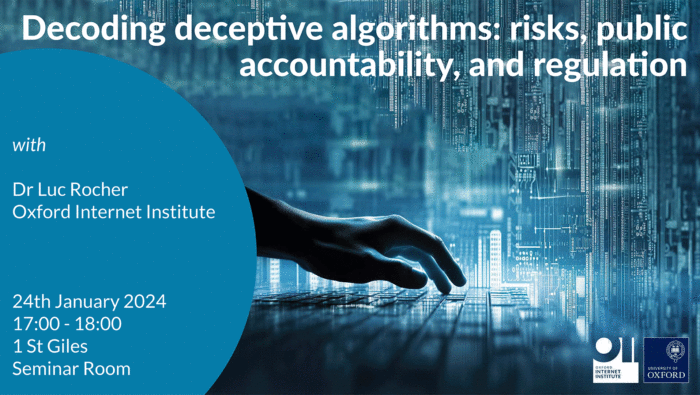
Dr Luc Rocher
Associate Professor
Luc conducts human-centred computing research to understand how data and algorithms impact society. They work to make digital power visible to the public and guide the development of accountable, sustainable, and safe algorithms for all.
